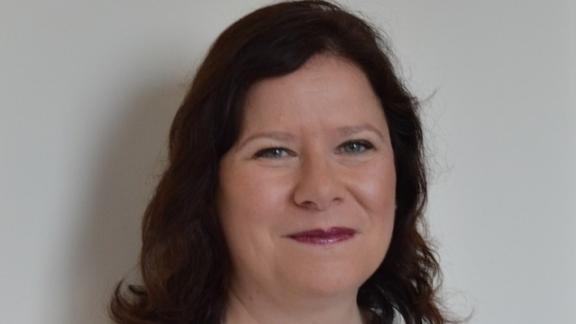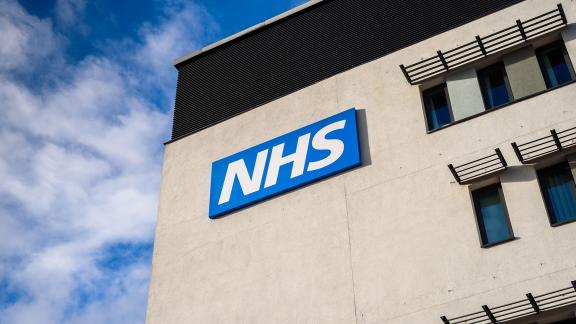Environmental sustainability – from peripheral projects to mainstream policy

As the United Nations Climate Change Conference, COP27, comes to an end today, Roberta Fuller shares her hopes for making sustainability mainstream in health and care delivery, and how this is happening within Cornwall in the design and build of the new Women and Children’s Hospital.
When sustainability enthusiasts meet to discuss their favourite subject the air fizzes with ideas and creativity abounds. However, like a November firework, unless these bursts of innovation are captured and mainstreamed, this kind of energy, which is so needed to move the NHS at pace towards carbon net zero, is lost in the daily operational struggle.
This is what it feels like trying to mobilise efforts to deliver on the Cornwall and Isles of Scilly Green Plan, in respect of new builds and refurbishments, at the county’s only acute hospital. In managing all the major capital estates projects being undertaken by the trust, my focus should be on the creation and refurbishment of buildings. But increasingly other strands of transformational work (digital, construction technology and environmental sustainability) demand just as much time. While exploring decarbonisation initiatives to meet ambitious local targets by 2030 is not a chore, I am aware that the only other high-profile work on sustainability in the organisation is an energetic social movement led by enthusiastic colleagues - full of popular and engaging small-scale projects and short videos on social media. While we are all working towards the same goals, we work in our silos and rarely cross paths, and it doesn’t seem anywhere near enough.
Motivation, education and resources
So how do we make sustainability a mainstream activity, embedded in the fabric of how we plan and deliver healthcare, and integral to organisational success?
For me it seems simple. We need the motivation, education, and resources to put sustainability far higher up the agenda. The NHS is incredibly good at working to targets and networking to inform a common goal. That goal, however, is usually the delivery of high-quality care in the here and now, and not the improved long-term delivery of ‘back office’ functions such as estates and facilities, and digital. Just look how long it has taken to roll out the electronic patient record to all trusts in England, and there are still 28 trusts waiting to get online. What chance do we have with rolling out Building Information Management (BIM)? The BIM goal is given very little attention, and yet BIM will provide the relevant data to support the delivery of net zero for the NHS built environment - demonstrating both financial and net-zero savings with improved asset management.
The national programme has a focus on partnering to share knowledge on the most cost-effective and sustainable ways to design, procure and build new hospitals
At the Royal Cornwall Hospital (RCHT), we are fortunate to work with the national New Hospital Programme to deliver our new Women and Children’s Hospital by 2028. The national programme has a focus on partnering to share knowledge on the most cost-effective and sustainable ways to design, procure and build new hospitals. Our partnering agreement supports improved networking to enable best practice to be embedded in the development of the programme, rather than being optional, and this sharing is coupled with an injection of education from the Cranfield Management School Project Leadership Programme. A pipeline of informed NHS innovators in the field of hospital design and development is therefore being progressed and, helpfully, sustainability has a high profile.
Questions to consider
Perhaps the policy makers and regulators will monitor the outputs of the New Hospital Programme and will be inspired to include some evidenced best practice on sustainability in the operational and regulatory frameworks for healthcare providers? Maybe setting targets, attached to funding, for activities which meet sustainability goals will follow? And perhaps they will link these targets to financial reward for sharing best practice and encouraging partnering with business, academia, and technology providers?
What will it take to move away from traditional top-down funding allocation towards the kind of cross-industry partnering and thought leadership needed to meet these extremely challenging climate goals? A lot of questions to consider.
My hope is that increased regulation, linked to funding, may elevate net-zero goals to receive the same attention from NHS trust boards as ambulance queues do
My hope is that increased regulation, linked to funding, may elevate net-zero goals to receive the same attention from NHS trust boards as ambulance queues do. Sustainability is no longer the domain of eccentric activists and unconventional entrepreneurs. In Devon and Cornwall, partly to meet the sustainability challenge, the vision is to support the triad of health, business and academia to work as a digital health ecosystem. A developing health technology ecosystem can support work to meet the sustainability challenge with the best and brightest minds, with greater access to developing technologies, and with collection and analysis of large-scale data to understand impacts on local communities. Let’s learn from others: Scandinavia does this well and is willing to share experiences.
There is no time to lose. As the planet warms, every decision we make must be a sustainability decision, and every investment in the NHS linked to our drive towards net zero. If we don’t move now, our environment will become increasingly hostile to the delivery of optimum healthcare and, unless we lift our eyes up from the challenges of today, tomorrow’s task may become impossible.
Roberta Fuller is head of hospital reconfiguration and programme director at Women and Children’s Hospital, Royal Cornwall Hospitals NHS Trust. You can follow the trust on Twitter @RCHTWeCare



